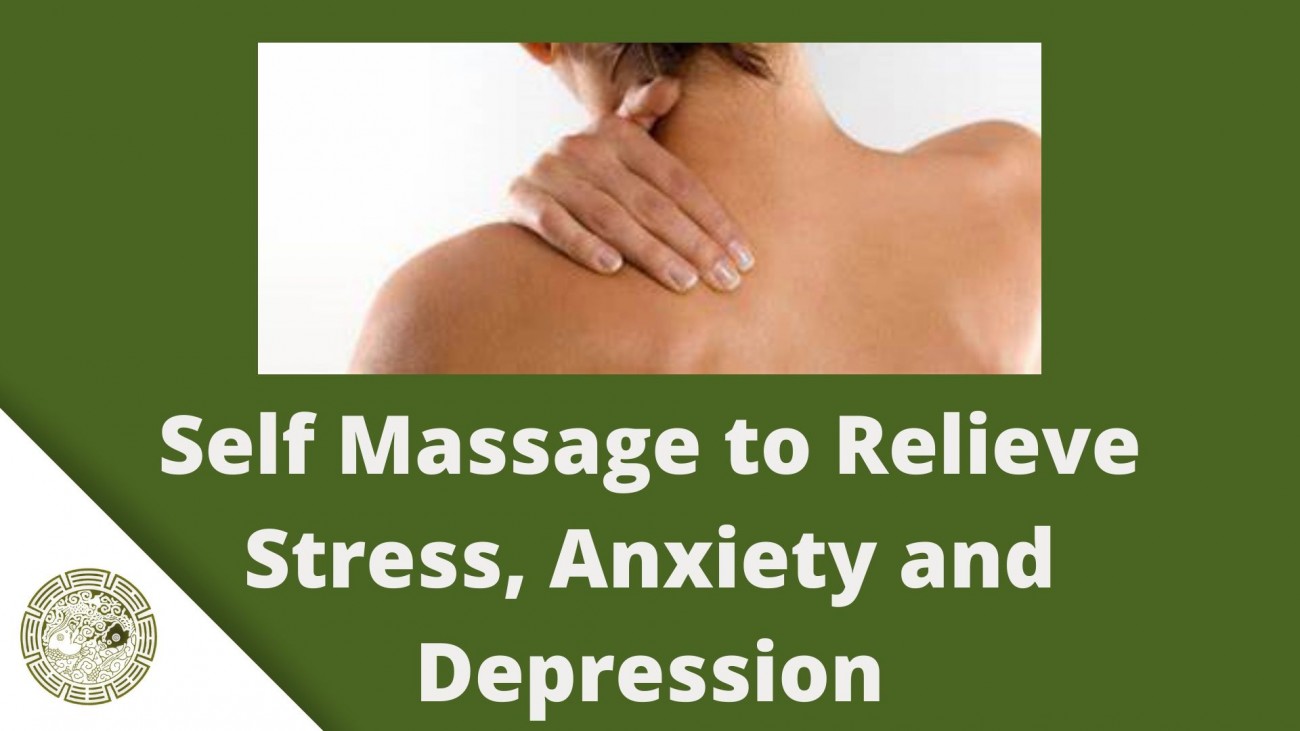
Self Massage to Relieve Stress, Anxiety and Depression
Jessica McLaughlin, LMT
In this unprecedented time of a global pandemic as a result of the Coronavirus, it is more important than ever that we take care of ourselves. With our everyday lives put on hold and turned upside down, many people are experiencing more stress, anxiety and depression which can have very physical impacts on our bodies. The “knots” you feel in your back or stiffness in your neck can be directly related to these emotions.
Stress, anxiety and depression activate the body’s fight or flight response, which causes the muscles to contract. Long or chronic periods of stress and anxiety then leads to muscle tension.
Massage not only helps with the physical pain caused by muscle tension but has proven to help reduce stress, anxiety and depression in many clinical studies. The Mayo Clinic states that “a 60-minute massage can lower cortisol, a hormone that’s produced in response to stress, by an average of 30 percent… By lowering cortisol and increasing serotonin, you’re boosting your body’s ability to fight off pain, anxiety and feelings of sadness.”
So what can we do while getting a massage is not an option due to the COVID – 19 pandemic?
Check in with yourself and be aware of certain stress habits that contribute to muscle tension. For example, do you clench your jaw or grind your teeth at night? This can cause severe jaw, neck and upper trapezius pain, not to mention headaches. Try some breathing and meditation techniques before bed (check out this link: https://www.healthline.com/health/breathing-exercises-for-anxiety) and consider a mouth guard. When you wake in the morning, using your index and middle fingers, apply pressure to the joint where your upper and lower jaw connect (temporomandibular joint or TMJ) to relieve tension. Then apply pressure all along the base of your skull (occipital muscles) and from the base of your skull, down your neck along each side of your cervical spine and into your upper traps.
Or do you find your shoulders elevating toward yours ears when stressed or anxious, maybe while sitting at a computer? This can cause lots of muscle tension and those painful “knots” in your upper back, especially that area between your shoulder blades and spine. Be mindful of this, take a deep breath and relax your shoulders when you notice it happening. You can take a tennis ball or baseball (the harder the ball, the deeper the pressure) and roll it in between your back and a wall applying pressure to the pain points. (Same for low back pain).
Recognizing habits that may be causing muscle tension is half the battle. Breathe, try to relax, adjust your posture and apply pressure to pain points to help massage out muscle tension.
There are also 6 acupressure points that are believed to help reduce stress, anxiety and depression specifically (Check out this link: https://www.healthline.com/health/pressure-points-for-anxiety)
Hopefully you find some of these techniques helpful. Stay home, be well, listen to your body and hope to see you soon!